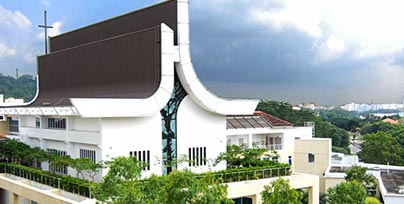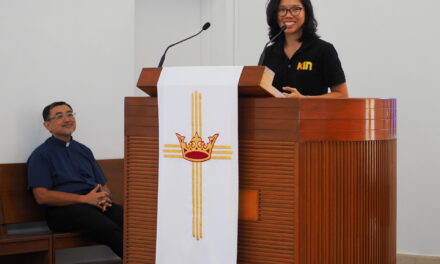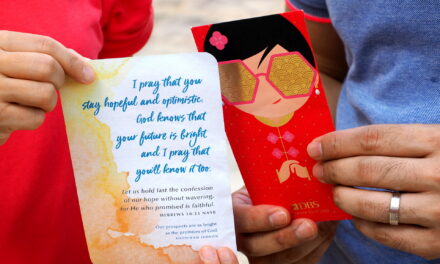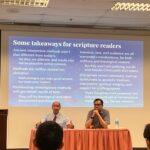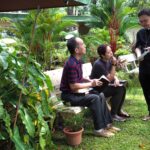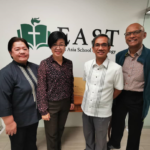
Basic Degree
Bachelor of Divinity (BD)Master of Divinity (MDiv)
Features of the Curriculum
1. Multi-dimensional. Equipping for ministry in Christ’s church involves a number of dimensions. These include
i) a thorough and responsible theological foundation which grounds the student in the knowledge, understanding and use of the Scriptures,
ii) cultivation of spiritual maturity and the formation of Christian character,
iii) perception of the ways in which God works in the church and the world in the past, present and future,
iv) development of the resources, abilities and methods which enable God’s servants, by the empowering of the Holy Spirit, to fulfil their calling. Learning in the setting of community is especially emphasised.
2. Integrative. The philosophy underlying the curriculum seeks to avoid a dichotomisation of courses into theoretical and practical. It seeks to avoid the dangers in such an approach which implies that theory has no practical significance and practice has no theoretical base. The focus of the theological curriculum is to combine theory and practice or foundation and operation, presenting students with a strong framework of biblical truth and cognitive learning which leads them on to ‘see’ (theoria) the personal spiritual application and practical ministry implementation.
3. Progressive. The foundational courses in the first year aim to help students make a smooth transition into theological education. The focus is more on content and background rather than critical issues, although the latter are not totally ignored. Whenever possible, some practical lessons from each book could be included.
4. Field Education. Field Education (FE) is an educational method that seeks to incorporate in the curriculum regular, supervised and evaluated opportunities for inter-relating theological learning with experience in actual ministry. This being the case, it is an integral part of the BD/MDiv curriculum.
The FE at Trinity is designed to help the students, through their ministry in the church and the world, achieve the following objectives:
- Understand more fully the responsibility and requirements of their vocation (as pastor, teacher, church worker, counsellor, missionary, etc.) to which they have been called to serve;
- Master personal and group methods of observation, reflection, evaluation and planning for ministry which will allow them to integrate academic knowledge, spiritual gifts and skills — particularly, human relationship skills — to specific ministry situations;
- Observe and learn from supervisors and church leaders in order to develop competence in ministry skills (e.g. preaching, teaching, pastoral care, leadership, etc.);
- Master methods of personal discipline sufficient for them to exhibit standards of reliability and accountability expected of the ministers of God; and
- Experience different kinds of ministry in a variety of settings in the church and the world.
- There are various components in the FE programme to provide both broadly-based and in-depth ministerial experiences for the students. The FE curriculum comprises the following components:
- Church visitation and discussion
- FE Seminar and Placement I
- FE Internship (during long semester break)
- FE Seminar and Placement II
- There are various components in the FE programme to provide both broadly-based and in-depth ministerial experiences for the students. The FE curriculum comprises the following components:
Placement and Internship Assignment
Placements and internships assignments can be fulfilled in churches, Christian welfare agencies, para-church organisations and other approved settings. The FE Office reserves the right to determine placements and internships. Whenever possible, students will be placed with supervisors who have attended College-sponsored supervisory training sessions.
Duration of Placement and Internship
FE placements are taken during semestral time. The student will spend between three to five hours per week on ministry associated with their placements on-site. The total hours per week including preparation and travel time should not exceed eight hours. The internship is done during the semestral break, after the student has completed FE Seminar and Placement I. This should last at least four weeks.
